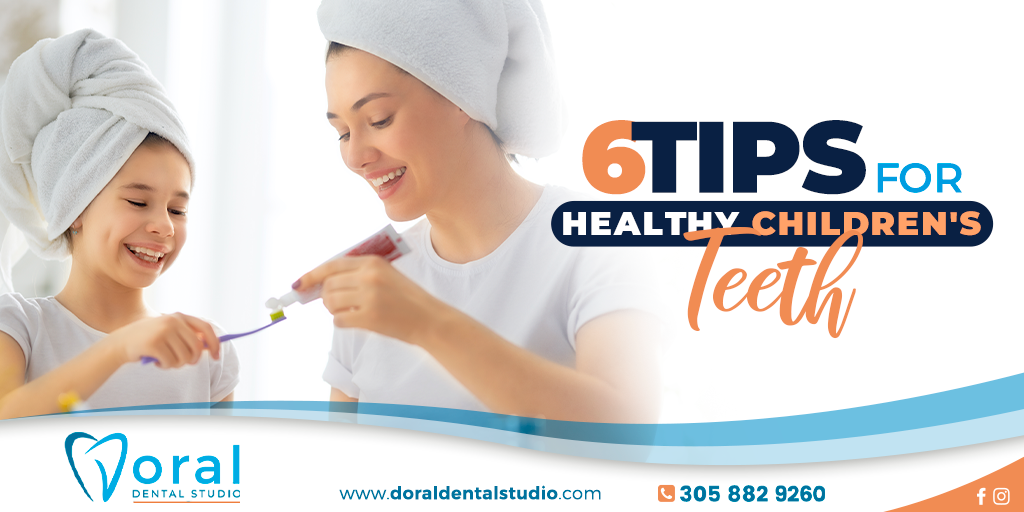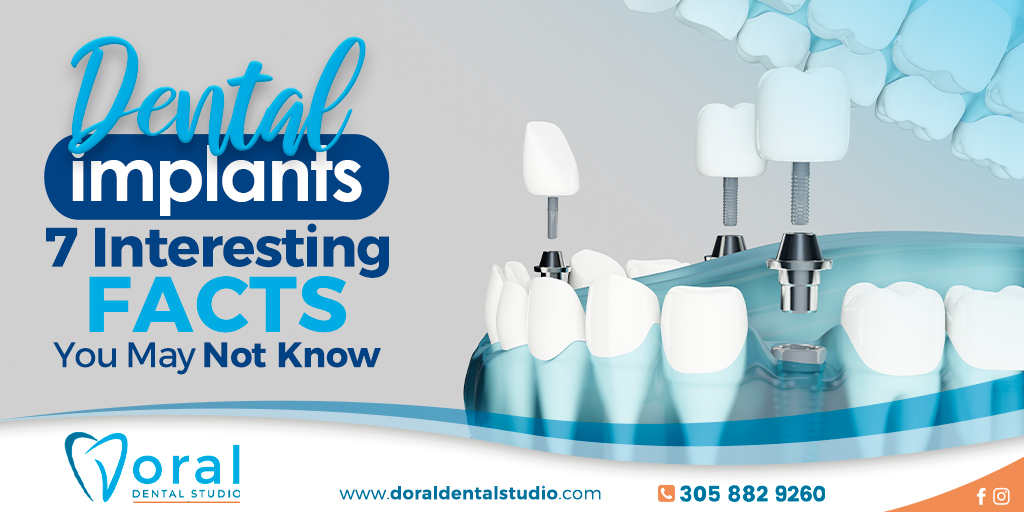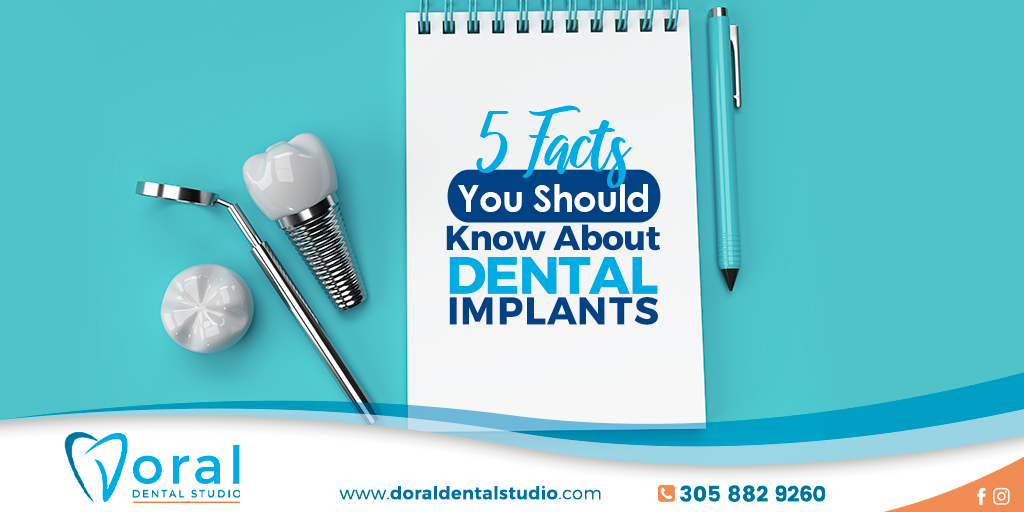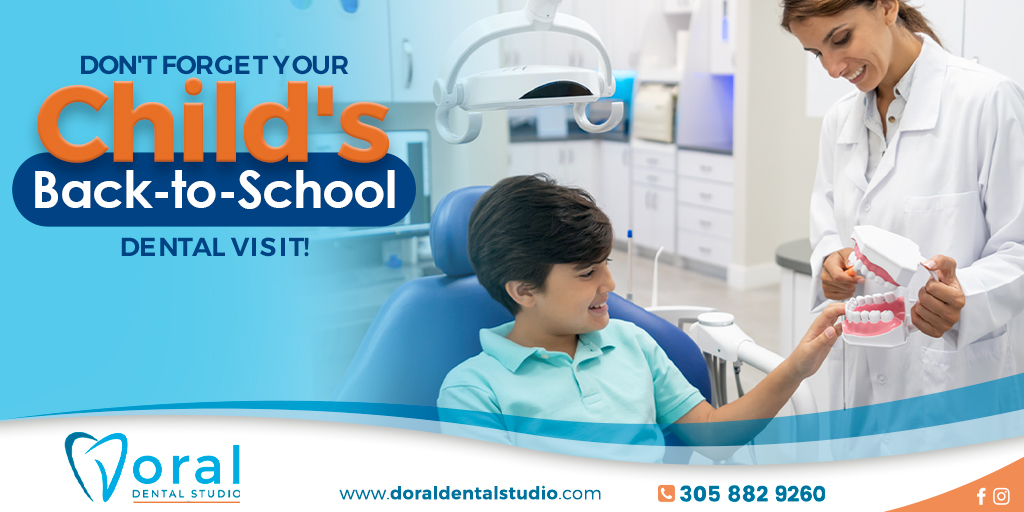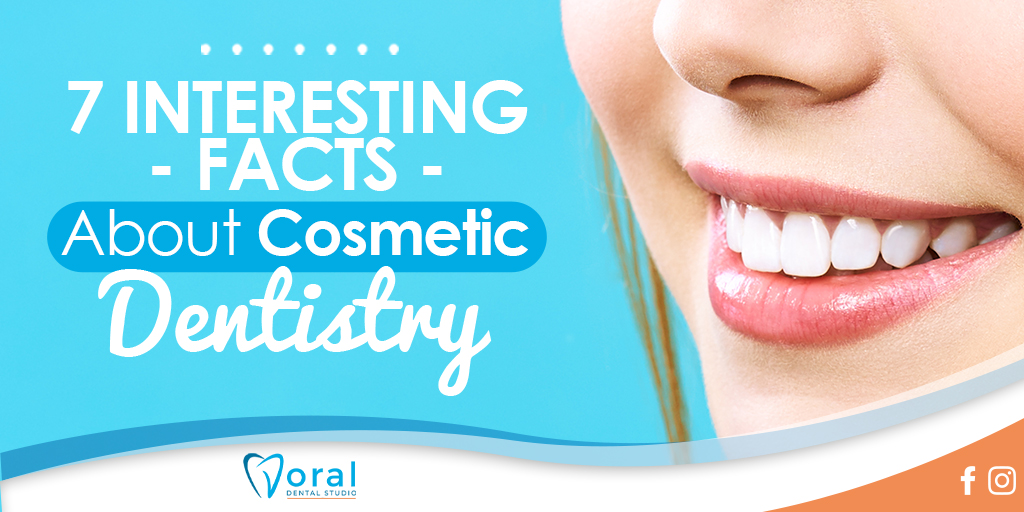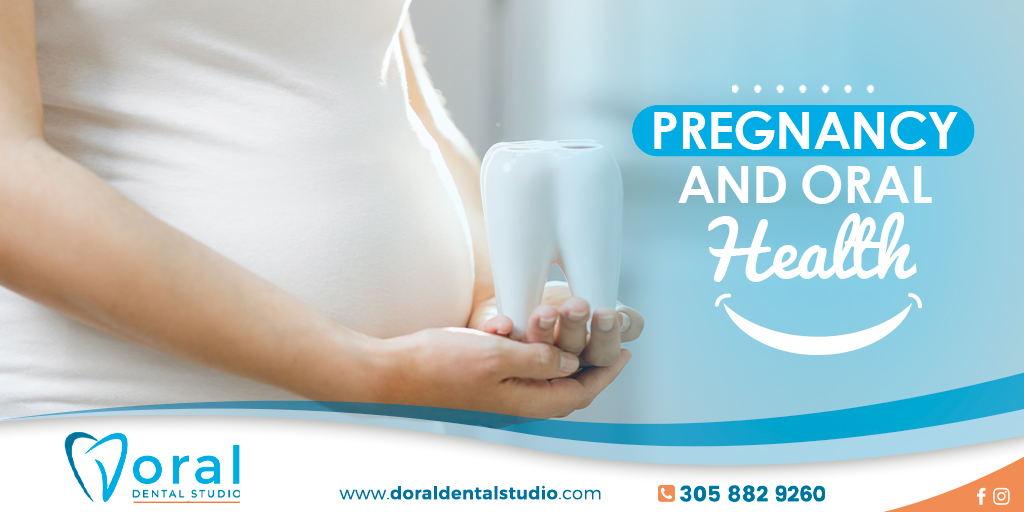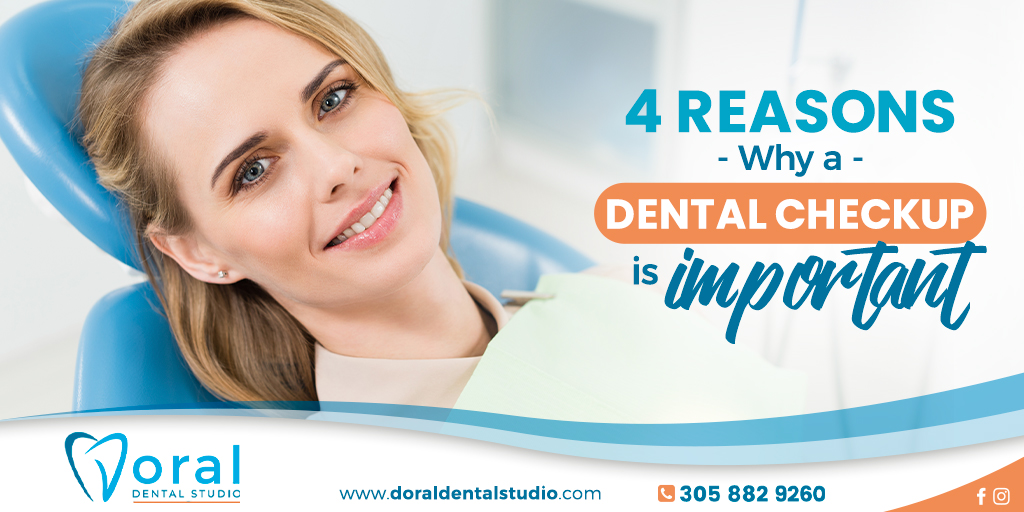Every February, the American Dental Association sponsors the National Children’s Dental Health month. Creating healthy dental habits at a young age is vital to ensuring your child has a lifetime of dental health. Tooth decay is more common than asthma and other common health problems among children. Parents need to teach their children habits that promote dental health and the time to start is now!
Here at Doral Dental Studio, the best dentist in Doral Florida, our team of dental professionals has years of experience in pediatric dentistry. Here are six tips to help you keep your child’s teeth healthy!
• Make their dental routine fun. Play their favorite music for two minutes twice a day while they’re brushing their teeth. If music doesn’t do the trick, there are lots of apps and timers available that will make toothbrushing a game rather than a chore. Have your kids try out a few and see which one they like best.
• Establish healthy eating habits early in life. Avoid giving children sugary sweets or fruit juice too frequently. Make carrots and hummus or apples and peanut butter a midday snack instead of cookies and candy. Save the sweet treats for special occasions, and consider giving them in the middle of a meal rather than at the end. The food eaten after the sugary snack will give you a head start in scrubbing away all that extra plaque.
• Start flossing early. Flossing is vital to preventing tooth decay and the earlier you start, the more likely it’ll become a habit that sticks. Children under the age of ten will probably need some extra help with their flossing, so make sure to help them out.
• Let your kids choose their own toothbrushes. Kids are more likely to use their toothbrushes if they like them. There are tons of toothbrushes out there with cartoon characters, bright colors, and other things your child will enjoy.
• Change your snacking habits. In addition to limiting sugary snacks, try using cheese as an after meal treat. Cheese is excellent for dental health. It’s full of calcium and is known to help prevent tooth decay. Also include healthy, calcium-rich nuts like almonds and cashews into your child’s diet.
• Don’t let them skip the greens! Dark, leafy greens are an incredible source of calcium and other vital nutrients. If your child starts eating healthy foods early, they’ll be more likely to continue eating them for the rest of their lives.
Helping your child establish healthy brushing and flossing habits will pay off in the long run. Reach out to us at Doral Dental Studio, the best dentist in Doral Florida, to schedule an appointment for your child. We have expertise in many areas of dentistry. If you’re looking for information on orthodontics, pediatric dentistry, or dental implants, our dental professionals are ready to help. To learn more about the range of dental services we offer, visit our website at https://doraldentalstudio.com

